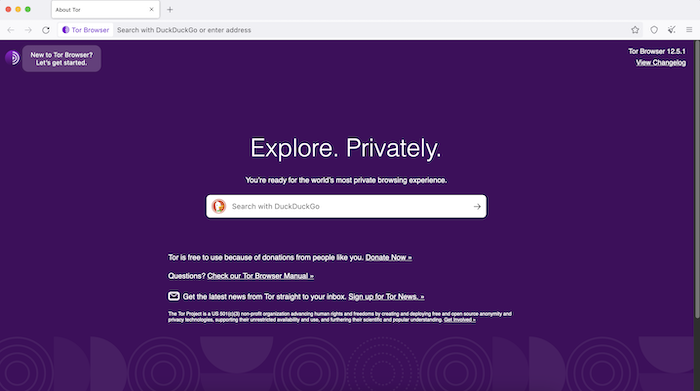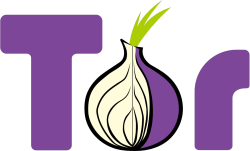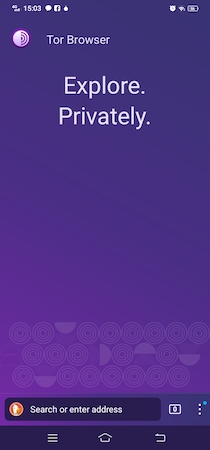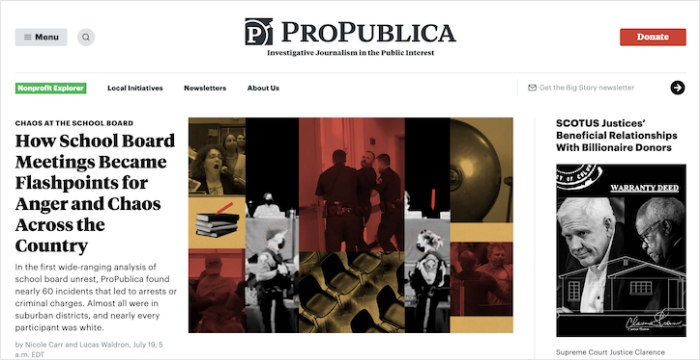25 Questions (and Answers) about the Dark Web
- Cybersecurity
- Dark web
So you’ve heard about the dark web and you have tons of questions about it. Maybe you are just curious or have concerns about getting stumble upon it while browsing the internet. Here is the list of 25 questions that you might ask about the dark web answered.
1. What is the dark web?
The dark web is a part of the internet that is not accessible by regular browsers or search engines. It is a hidden network and you need to use some special software to access the dark web.
The dark web is often used for illegal activities, such as buying and selling drugs, weapons, fake IDs, and other contraband. It is also a place where people can communicate anonymously, without fear of censorship or surveillance.
2. What is the history of the dark web?
The term “dark web” was first used in 2009, but the technology that powers the dark web has been around for much longer. The dark web is built on top of the Tor network, which was originally developed by the US Navy in the 1990s.
The dark web became more widely known in 2011, when the Silk Road marketplace was launched. The Silk Road was a marketplace where users could buy and sell various goods and services, mostly illegal, such as drugs, weapons, counterfeit money, hacking tools, and even murder-for-hire. The website was eventually shut down by law enforcement in 2013, but it has since been replaced by other dark web marketplaces.
Today, the dark web is a vast and complex ecosystem. It is used by a variety of people, including criminals, journalists, and activists. The dark web is also used for legitimate purposes, such as whistleblowing and political activism.
3. How does the dark web work?
The dark web works by using a cluster of nodes and networks called “darknets”. These include peer-to-peer networks, such as Tor and Freenet, that are created specifically for the dark web.
Users of the dark web need to use specialized software, such as the Tor browser, to access these networks. The software encrypts the user’s data and routes it through multiple intermediate servers, making it almost impossible to trace the user’s identity and location.
4. How do I access the dark web?
One of the most common ways to access the dark web is by using the Tor browser, which is a free and open source software that anonymizes your online activity by routing it through a network of volunteer servers around the world.
 Tor browser
Tor browser
Once you have installed the Tor browser on your computer, you just need to type the .onion address of the website you want to visit in the address bar.
Other alternatives for accessing the dark web are by using I2P and Freenet.
5. What is the Tor network?
The Tor network is a network of volunteer-operated servers that are used to route traffic through the dark web. This helps to protect the user’s anonymity by making it difficult to track their real IP address.
 The Tor Project
The Tor Project
The Tor network is often used to access the dark web, but it is not the only way to access the dark web. There are other networks that can be used, such as I2P and Freenet. However, the Tor network is the most popular network for accessing the dark web.
6. What is the difference between Tor and Freenet?
Tor and Freenet are both anonymous networks that allow users to communicate and share information without being tracked. However, there are some key differences between the two networks.
-
Tor is a proxy service, which means it lets users access the general web, but anonymously. Freenet is a contained network, which means it only lets users access the content that is stored within the Freenet network by other users.
-
Tor uses a network of volunteer servers called relays or nodes that pass the encrypted traffic from one to another until it reaches the destination. Freenet uses a distributed hash table (DHT) that stores encrypted data on the hard drives of other users in the network.
-
Tor provides a higher degree of anonymity than Freenet, because it has a larger number of nodes and users, and because it uses multiple layers of encryption called onion routing. Freenet provides a higher degree of resilience than Tor, because it does not rely on any central authority or server, and because it replicates data across the network.
7. What is a .onion domain?
A .onion domain is a special type of domain name that is used to access websites on the dark web. The domain name is not registered like a normal domain name, but it is generated automatically by the Tor software when a website is set up on the dark web. A .onion domain name consists of a random string of letters and numbers that ends with .onion.
The purpose of using a .onion domain name is to make both the website provider and the website user more difficult to trace, whether by one another, by an intermediate network host, or by an outsider.
8. What is the difference between dark web and deep web?
The dark web and the deep web are two different parts of the internet that are often confused or misunderstood. Here is a summary of the difference between them:
The deep web is all the content on the internet that is not indexed by regular search engines. This includes password-protected sites, encrypted data, online databases, and webmail services. The deep web is mostly benign and legal, as it contains information that users want to keep private or secure.
The dark web is a small subset of the deep web that is deliberately hidden and requires special software to access. The dark web is often used for illegal or illicit activities, such as buying and selling drugs and weapons. But it also hosts some legitimate sites.
9. Is it possible to access dark web content using mobile devices or smartphones?
Yes, you can access dark web content using mobile devices or smartphones. There are a number of dark web browsers available for mobile devices, such as the Tor Browser for Android and Onion Browser for iOS.
 Tor browser for Android
Tor browser for Android
It is important to note that accessing the dark web on a mobile device can be more risky than accessing it on a computer. This is because mobile devices are often more easily tracked and more vulnerable to malware and other attacks.
10. Is it safe to use the dark web?
Using the dark web is not safe, unless you take some precautions to protect your privacy and security. The dark web is a place where criminals can anonymously buy and sell illegal goods and services, such as drugs, weapons, and stolen credit card numbers.
There is also a high risk of malware and viruses on the dark web, which can be used to steal your personal information or infect your computer with malicious software.
If you do decide to use the dark web, it is important to take precautions to protect yourself.
11. Can I accidentally stumble upon the dark web while browsing the internet?
No, you cannot. The dark web is a part of the internet that is not accessible by regular browsers or search engines. To access the dark web, you would need to use a special browser and know the address of the dark web websites. These addresses are not indexed by search engines, so you would not be able to find them by accident.
So, no, you cannot accidentally stumble upon the dark web while browsing the internet. If you want to access the dark web, you will need to do so intentionally.
12. What is the most popular website on the dark web?
The most popular website on the dark web is DuckDuckGo. DuckDuckGo allows you to search for any topic or website on the dark web or surface web while protecting your privacy and anonymity.
13. Can you give me sample legitimate sites on the dark web?
One of the sample legitimate sites on the dark web is ProPublica, which is a journalism platform that publishes provoking pieces on a wide range of topics from finance, politics, etc.
 The ProPublica website
The ProPublica website
Some other sample legitimate sites on the dark web are: DuckDuckGo, Sci-Hub, and The Hidden Wiki.
14. Is it illegal to use the dark web?
No, it is not illegal to use the dark web. However, what is illegal is some of the activity that occurs on the dark web. There are sites that sell illegal drugs and firearms, distribute child pornography, offer hacking services, and engage in other criminal or unethical acts. Visiting or participating in these sites can get you in trouble with the law.
15. Are all activities on the dark web illegal?
No, not all activities on the dark web are illegal. Although it is often used for illegal activities, it is also a place where people can communicate anonymously, without fear of censorship or surveillance.
16. What are some of the legitimate uses for the dark web?
Here are a few examples:
-
Bypass government censorship Some countries have strict internet restrictions that limit what their citizens can see online. The dark web can help them access blocked or censored websites, such as news outlets, social media platforms, or human rights organizations.
-
Anonymous collaboration with journalists Journalists, activists, and whistleblowers may use the dark web for secure communication or to access information that may otherwise be difficult or impossible to obtain.
-
Visit news outlets In countries where the internet is heavily controlled, the dark web can be used to access information and communicate freely.
-
Contact the CIA anonymously CIA launched their official onion site on the dark web in 2019. It is aimed at people who want to contact the CIA but are concerned about their privacy.
See also: 12 Legitimate Uses for the Dark Web.
17. How do I know if a website on the dark web is trustworthy?
One of the challenges of accessing the dark web is verifying the trustworthiness of the websites you visit. Unlike the clear web, where you can rely on search engines, reviews, ratings, and certificates to evaluate a website’s credibility, the dark web does not have such features.
In short, there is no definitive way to know if a website on the dark web is trustworthy.
18. Is it safe to buy things from the dark web?
Buying things from the dark web is not safe at all. Here are some of the risks associated with buying things from the dark web:
-
Scams There are many scams on the dark web. You could be scammed out of your money or your personal information.
-
Malware and viruses There is a high risk of getting malware or viruses from dark web websites. These can infect your computer and steal your personal information.
-
Law enforcement Law enforcement is actively investigating dark web activity. If you are caught buying things from the dark web, you could face serious legal consequences.
19. Is it possible to buy or sell sensitive personal information on the dark web?
Yes, it is possible to buy or sell sensitive personal information on the dark web, but it is also very risky and illegal. You may get caught by law enforcement agencies who monitor the dark web and face serious legal consequences.
Therefore, I strongly advise you not to buy or sell sensitive personal information on the dark web.
20. What role do cryptocurrencies play on the dark web?
The dark web is often used for illegal or illicit activities, and cryptocurrencies provide a convenient and anonymous way of paying for these goods and services, as they do not require any personal information, bank accounts, or intermediaries.
 Bitcoin, Monero, Litecoin, and Dash
Bitcoin, Monero, Litecoin, and Dash
Bitcoin is the most used cryptocurrency on the dark web although it is not very private or anonymous as it records all transactions on a public ledger called the blockchain. Some alternatives to Bitcoin that offer more privacy and anonymity are Monero, Litecoin, and Dash.
21. How do law enforcement agencies monitor and investigate dark web activities?
Law enforcement agencies monitor and investigate dark web activities using various methods and techniques, such as:
-
Hacking Some law enforcement agencies may employ hackers or use hacking tools to infiltrate or compromise the security and functionality of dark web websites or networks.
-
Undercover operations Some law enforcement agencies may use undercover agents to pose as dark web users or vendors and gain access to dark web marketplaces, forums, or chat rooms. They may also use fake websites or services to lure or trap dark web criminals.
-
Working with tech companies Tech companies can provide law enforcement with access to data and information that can help to identify and track dark web users.
-
Using informants Informants can provide law enforcement with information about dark web websites, users, and activities.
22. Can websites on the dark web be shut down or taken offline?
Yes, websites on the dark web can be shut down or taken offline. But it is not easy or straightforward. Even if a dark web website is taken down, it is likely that it will be back up again soon. This is because the dark web is constantly changing, and new dark web websites are being created all the time.
Here are a few possible ways:
-
Hacking Some hackers may target websites on the dark web for various reasons, such as exposing illegal activities, stealing data, or causing damage. This is a more technical task, but it is possible with the right skills.
-
Law enforcement operations Law enforcement can take down dark web websites by seizing the servers that they are hosted on. This is a difficult task, as dark web websites are often hosted on servers in countries with weak law enforcement.
-
Blocking the access Dark web websites can be taken down by simply blocking access to them. This can be done by law enforcement or by internet service providers.
23. Are there any efforts to shut down or regulate the dark web?
Yes, there are a number of efforts to shut down or regulate the dark web. Some examples:
-
In 2013, the FBI shut down the Silk Road, one of the most notorious online marketplaces on the dark web that sold drugs, weapons, and other illegal goods and services.
-
In 2021, the US Department of Justice announced the seizure of Hydra Market, one of the largest dark web marketplaces for illegal goods and services.
These are some of the efforts to shut down or regulate the dark web, but they are not very effective or successful. The dark web is constantly changing, and new dark web websites are being created all the time.
24. How do I stay safe on the dark web?
Staying safe on the dark web is very important, as it is a dangerous and unpredictable place. There are many risks and threats that you may encounter, such as malware, scams, law enforcement surveillance, exposure of personal information, etc.
Here are some tips on how to stay safe on the dark web:
-
Use a VPN A VPN is a service that encrypts your internet traffic and hides your IP address from anyone who may try to spy on you or track you.
-
Use a secure operating system and browser The Tor browser is a good choice for accessing the dark web. It is a free and open-source browser that is designed to protect your anonymity.
-
Use strong passwords Use strong passwords for all of your accounts, including your Tor browser.
-
Be careful what you download Do not download any files from the dark web unless you are sure that they are safe.
-
Be careful what you share Do not share any personal information on the dark web that you would not share on the surface web.
25. What is the future of the dark web?
The future of the dark web is uncertain. Some experts believe that the dark web will continue to be used for illegal activity. Others believe that the dark web will become more mainstream and that it will be used for a wider variety of purposes.
It is also possible that the dark web will evolve in new and unforeseen ways. As technology changes, so too will the dark web. Only time will tell what the future holds for this mysterious part of the internet.
Summary
The dark web is a complex and ever-changing landscape. It can be a dangerous place, but it can also be a source of information and resources for those who know where to look.
In this post, we have answered 25 questions about the dark web. Remember that the dark web is a constantly evolving space. As such, it is important to stay up-to-date on the latest information about the dark web.